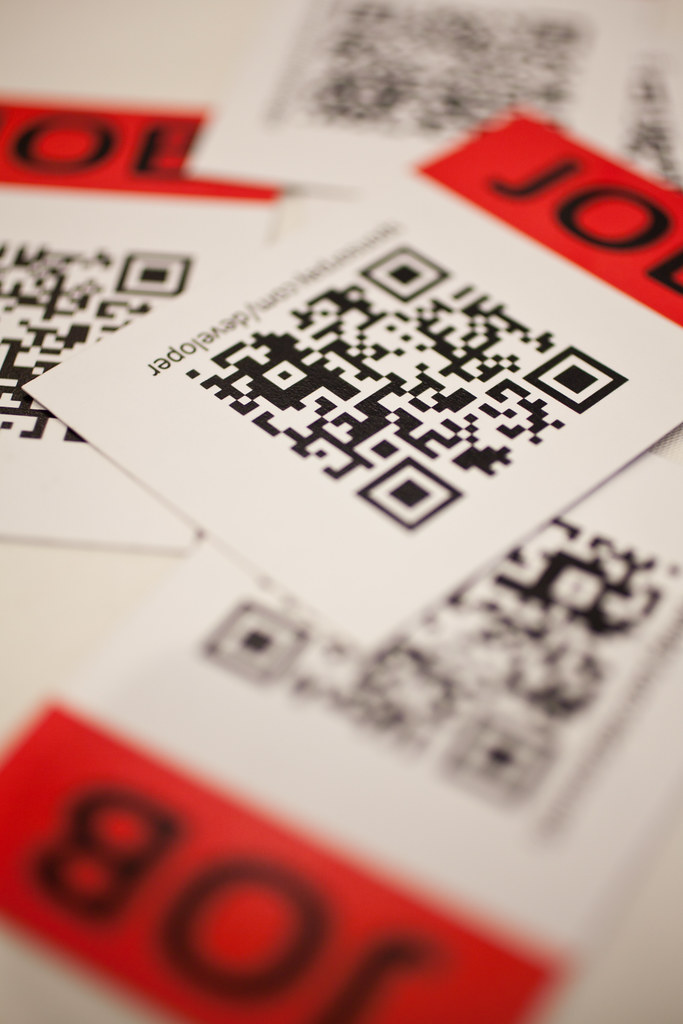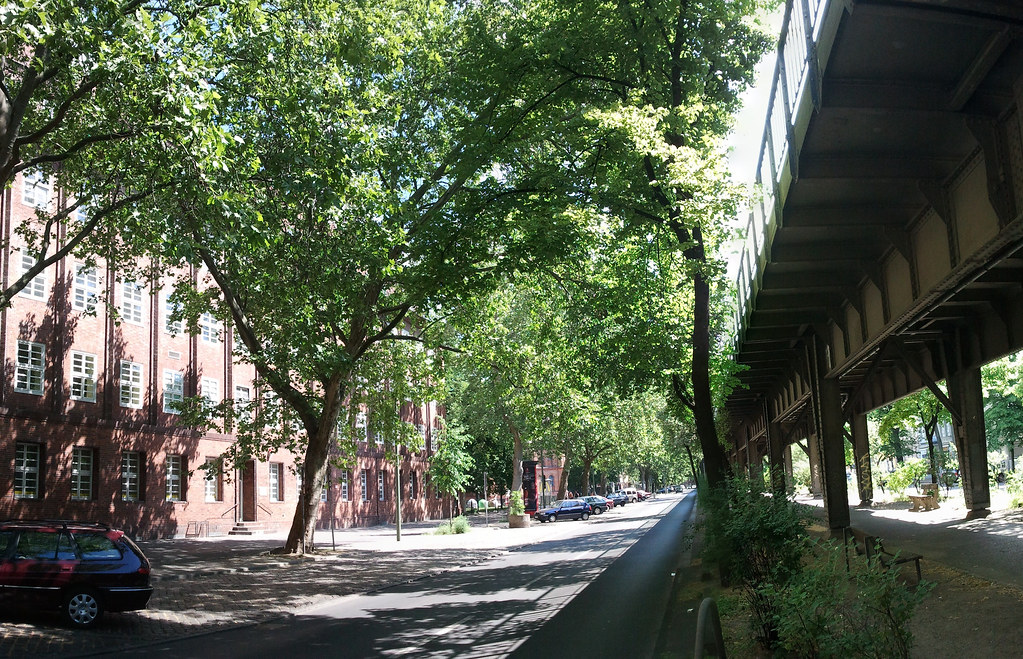So you’ve fallen head over heels with the threadbare charm of Berlin and want to move here faster than you can say “Hartz IV”. But while the German capital might traditionally be the home of drifters, dreamers and dropouts, unless you’re burning through your trust fund, or are planning on a career as a punk at Kotbusser Tor, those bills still have to be paid.
While “real” jobs can seem to be thin on the ground in the Berlin, armed with the right preparation and information, you can snag yourself a position you might actually not hate.
Here Tia Robinson from Expath.de – a startup helping expats find their feet in Berlin – shares the best way of finding gainful employment in Berlin.
There are two main challenges you’ll face when looking for a job, which are much the same the world over: finding the right position and actually securing the position once you’ve applied.
Sites with Berlin-specific job listings such as The Local, Berlin Startup Jobs, Berlin Xpat Jobs and VentureVillage are full of interesting openings in international, creative surroundings and are a great way to start your search. However, to go from reading job ads to signing a job contract, you’ll also want to ask yourself the following…
Where are you?
Many companies prefer candidates to have a German address and contact information – that shows HR managers that working in Germany isn’t just a whim and that you’re serious about relocating.
Being in Berlin also makes it easier to approach companies in person, attend interviews (and start working) at short notice, as well as build up your professional network. If you’re not already living in Berlin but want to be, why not save up money to come for a few months and search for jobs on the ground?
Who are you talking to?
Applying for jobs online is only half the battle of effective job-hunting. Many Germans use “Vitamin B” (B for “Beziehung”, or relationship) to help them get a foot in the door. You can get your own dose of Vitamin B by building up your own network of professional and personal contacts who can keep an ear out for job openings and possibilities.
Meet “your people” by attending lots of events – not just events for your industry, but also gallery openings, international language events, street festivals, flea markets, etc… Good places to find international events include Spätschicht, MeetUp, Art Connect, The Wye – the list goes on. You’ll meet fascinating people from a wide variety of countries, companies and professional backgrounds. You may even make some friends in the process.
In Berlin you’ll hear English (or Spanish or French, etc) on a daily basis. Take every opportunity to try to talk to interesting strangers – in the train, in a café, in line at the supermarket. Make sure you’ve got a business card with your name and contact information, ask for their contact information – and be sure to follow up.

berlin_02.06.2010_6859 by Patrick Lauke under licence CC BY-NC-ND 2.0
How to present yourself to companies
We’ve interviewed several German HR managers working in international companies about typical mistakes non-German applicants make. Their answers may surprise you.
Firstly, all our HR managers agreed that it’s absolutely no problem to have an English CV and covering letter. While this may not be the case for older, more traditional German companies, many international companies, especially startups, care more about the quality of your work than what your native language is.
Many companies use English as their internal working language. However, even if the internal company language is German, our HR managers said that a B1 German level would be acceptable at first so long as you don’t have to pitch to clients or deal with customer service.
Our HR managers also confirm that you should put your date of birth, place of birth, and a photo on your CV with the caveat that no photo is better than a bad photo. What’s a bad photo? Germans typically have professional “Bewerbungsfotos” taken at a studio (for about €20) but if you don’t like that option, just make sure the photo is a clear headshot of you dressed professionally and smiling (or at least looking friendly).
One HR tip we especially love that goes for how to dress in both the CV photo and interview: look at the photos on the website of the company’s founders and match their style and formality.
The covering letter is an extremely important part of applying for work, and should not be generic but tailored to the particular position and company, and addressed to a specific contact person whenever possible. Your letter needs to state precisely why you’re so excited about the company and what makes you special or distinguishes you from other candidates.
Germans often submit an “Initiativbewerbung” (unsolicited application) to companies they are interested in, even if no current openings are posted – feel free to do this too, following the rules above and making sure to say which department or role you would want to interview for.
And no matter what language your CV and cover letter are in, PROOFREAD carefully.

A Job for Life by Sky. under licence CC BY-NC-ND 2.0
Are you using every available resource?
The governmental job agency (Agentur für Arbeit) provides free job-seeking services to EU and non-EU citizens alike. Which services you can access depends on your nationality and visa status, but anyone can register for the online Jobbörse (jobs search engine). If you’d like to go in person, it’s a good idea to take a friend who speaks German or book a translator such as Red Tape Translation to go with you.
Create a great profile on both LinkedIn and Xing, and get previous employers and colleagues to endorse you and write full recommendations. Think about setting up a simple website showing examples of your work, or if that’s too time-consuming try an about.me page or similar as a digital alternative or supplement to your CV.
You can also register at a temp agency (“Zeitarbeit”) or recruitment agency (“Personalagentur”) where they’ll do some of the work for you. Manpower, Randstadt and Robert Half are popular international choices, among many others.
Don’t take it too personally
A rejection – or simply not being called back – is not the end of the world. As with everything in Berlin, the successful expats don’t take it personally or become cynical. Determination and patience in the face of adversity, always being proactive and planning carefully are the keys to success. Thousands of others have done it – you can, too… Happy hunting.
This post was originally published on Venture Village.



 We were happy we did, as Expath’s language courses are the best we’ve experienced. The classes are small (with an average of eight students), conversational, student-centred and taught by the liveliest, loveliest teachers we’ve ever had. We’re quickly picking up the grammar grounding and relevant vocabulary we need to be able to talk about the stuff that matters to us, and, at the same time, meeting like-minded and motivated students we can practice on. Another bonus is Expath’s location – in the Wye complex on Skalitzer Strasse, which is only ten minutes’ bike ride away from us, and convenient for anyone living in Kreuzberg, Friedrichshain or Neukölln… you know, where all the expats live!
We were happy we did, as Expath’s language courses are the best we’ve experienced. The classes are small (with an average of eight students), conversational, student-centred and taught by the liveliest, loveliest teachers we’ve ever had. We’re quickly picking up the grammar grounding and relevant vocabulary we need to be able to talk about the stuff that matters to us, and, at the same time, meeting like-minded and motivated students we can practice on. Another bonus is Expath’s location – in the Wye complex on Skalitzer Strasse, which is only ten minutes’ bike ride away from us, and convenient for anyone living in Kreuzberg, Friedrichshain or Neukölln… you know, where all the expats live!










